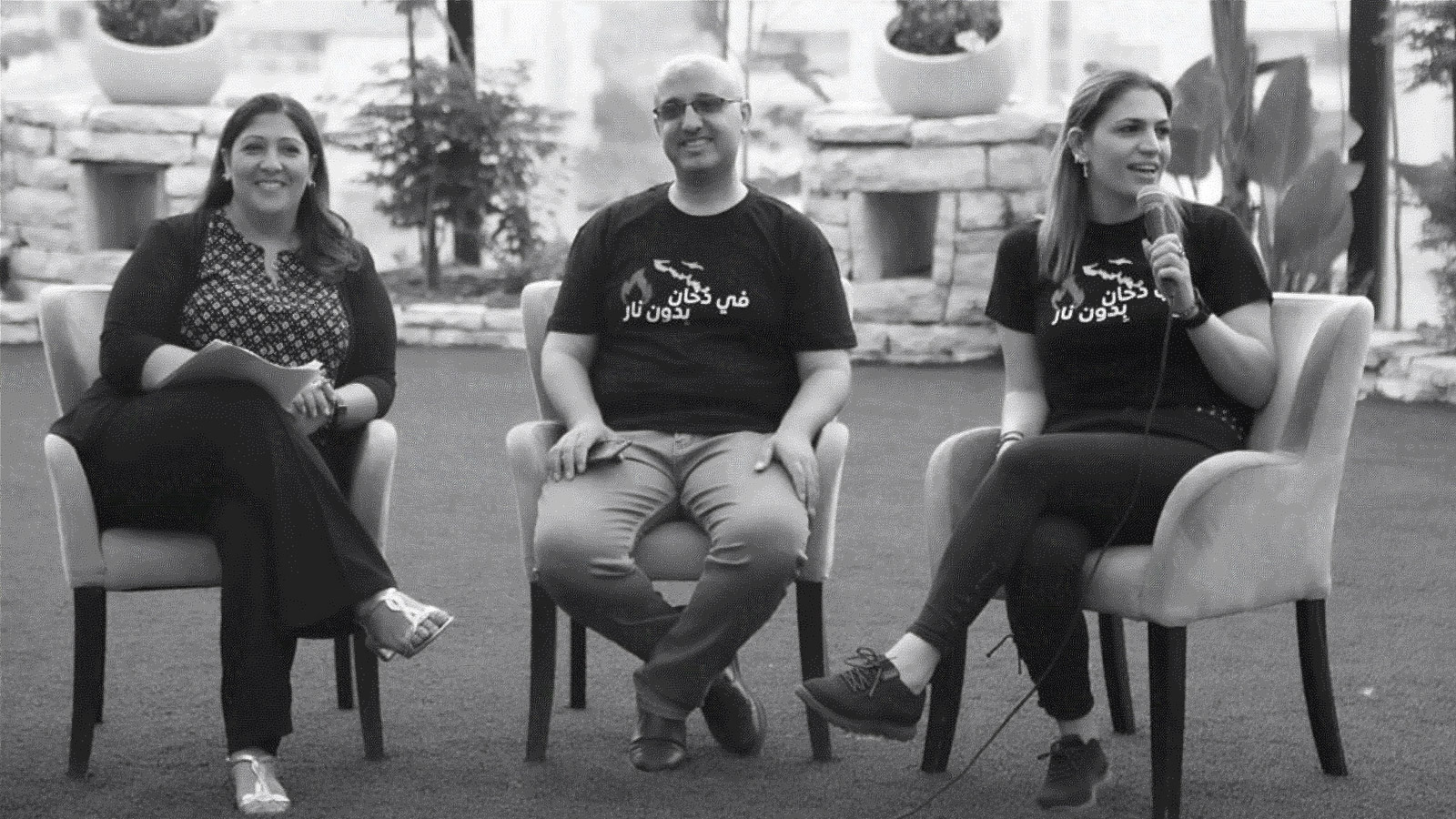
“Whatever we do, we feel guilty. We’re never doing enough. But we know we have to keep working. We do our best to help,” says Riham Abu Aita, co-founder of Kashif, The Palestinian Platform for Fact-Checking and Media Literacy.
Since 7 October, Kashif’s fact-checking team has dealt with an avalanche of misinformation and disinformation about the war in Gaza and about Palestinians in general.
“A big part of our work is confronting the so-called ‘Palliwood’ – a huge anti-Palestinian online campaign that brands all footage from Gaza as a media production. Posts on social media claim that all photos and all videos from Gaza about the war are fake. So far, these posts have reached 56 million people,” she says.
The Kashif team meticulously fact check each post and point out the inaccuracies and the lies, which they publish on their website and social media. While the scale of the Israeli propaganda machine can be daunting, Riham believes that they are making a difference in making the Palestinian narrative heard.
Kashif was initially set up 2021 by Riham and a fellow journalist Kayed Mi'ari during Covid-19 as a voluntary organisation to fact-check medical and health information related to the pandemic. Realising there was significant interest in this work, they began to fact-check more general news within the Palestinian media and digital space, provide capacity building for youths and journalists on fact-checking, and raising awareness of disinformation through media campaigns, lectures and conferences.
Over a short period of time, Kashif grew to become a reference for fact-checking in the region. It was recognised by the Palestinian Journalists Syndicate as a credible source and it has built partnerships with other organisations such as EED partners, 7amleh and Sada Social, and with international actors such as the International Federation of Journalists and Google News Initiative.
Following 7 October, Kashif expanded their fact checking role to include news and posts in English and Hebrew.
“We knew we had to fight this disinformation. So much was coming from outside Palestine. We had to do what we could to break this cycle of impunity,” she says.
Kashif communicate their fact checking findings via their social media and website.
“Many Palestinian activists have shared our social media widely. Before 7 October we had only 1,500 followers on Instagram. Now we have over 39,000. They engage with us a lot. But are careful about what we post,” she says.
Like other Palestinian organisations, Kashif work in the face of a constant silencing of their narrative.
“Social media is the main source of false claims and disinformation. We’re verified on Facebook. We have 26,000 followers, all of whom were generated organically, yet our reach is nearly zero. They’re trying to block Palestinian content. Our TikTok account was banned two weeks after the war started,” she says.
Kashif are a small team, with three based in the West Bank and one colleague still working from Gaza, although at a significantly reduced capacity.
“He is one of the lucky ones. He lives in a house with 25 other people from his family. That is a privilege today, not living in a tent. But the details of his life are unimaginable,” she says.
Riham explains that Kashif find posts and media articles to fact check via constant searches for key words. They also work with a wide network of fact-checkers, which include media students and journalists they have trained over the past four years. Today, given their reputation they also receive a constant stream of messages with material to fact check.
“During the first months of the war, we couldn’t handle the volume of messages. We are Palestinians so we are used to working under pressure, but never for so long a period. We are exhausted. Our small team watches videos and looks at pictures from Gaza all day long. At the beginning, we were working 24/7 until 4am each day, barely sleeping,” she says.
She admits that with the pressure the team were burnt out and in January, they took a conscious decision to take a day off each week, to protect the team’s mental health.
Despite these challenges, Kashif are continuing to expand their work. They are now developing a ‘Politic Fact-check’, or a barometer to measure the honesty of Palestinian Authority officials, to be launched later this year. In developing this barometer, they are working closely with academics from Birzeit University in Ramallah, and with the wider media community.
“Each week, PA officials tell us about decisions, but there is no follow up about how these are applied. We want to reveal this and to make people aware,” she says. She sees this tool as vital with municipal elections due in 2026.
It was thanks to an EED grant that Riham and her team were able to make the leap from a volunteer activity to a full-time professional activity. She sees this funding as having a huge impact on Kashif. The organisation is now officially registered.
“We have a core team now. We have a strategy. There is real stability. We are more effective. That also means we can apply for new grants. We have a clear vision of what we want to do,” she says.
Today, Riham could not imagine doing anything else. “This is what I have been doing since I left university. This is what I know,” she says of her long-term communications, freedom of expression and fact checking work.
This article reflects the views of the grantees featured and does not necessarily represent the official opinion of the EED.